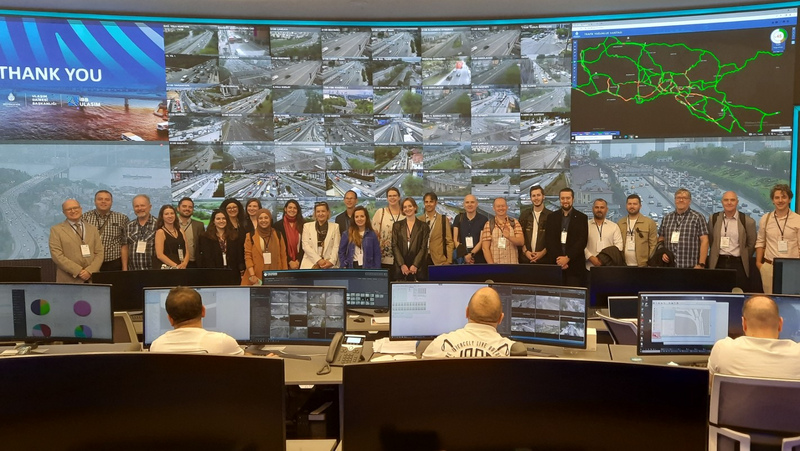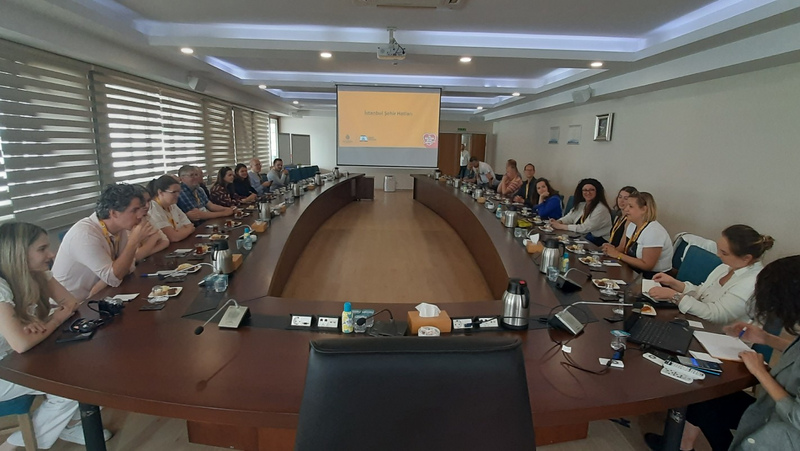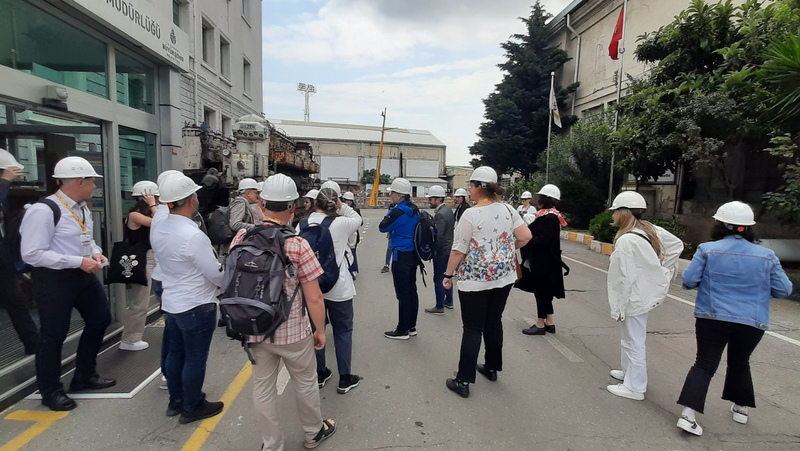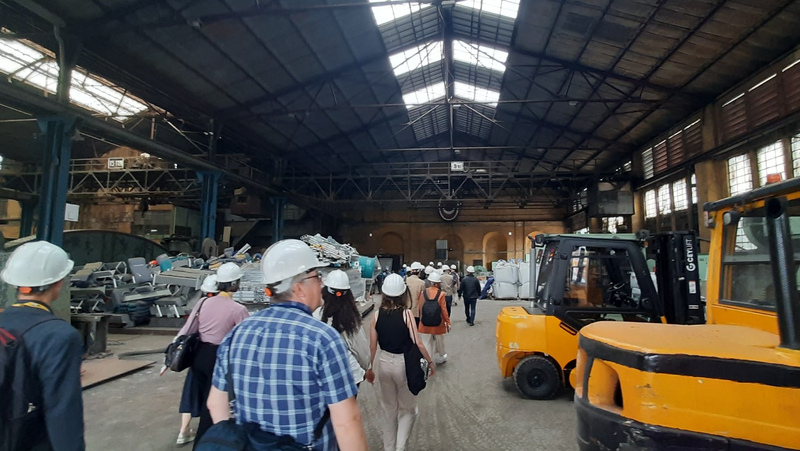Our last Mobility Mission was held in May 24-26 May in Istanbul and organised by Okan University with a number of innovative solutions presented.
On the first day, Ms Melike Önyılmaz, COO at IBB (Istanbul Metropolitan Municipality) Mobility Management Center, presented its structure and operations. The participants discussed the use case of the central road mobility management based on an extensive array of cameras placed at 2250 intersections throughout the metropolitan area, and surveyed 24/7, with the aim of ensuring smooth traffic flow, not only by controlling traffic signals but also dispatching tow trucks as well as providing informative visual announcements throughout the metropolitan area.
Additionally, The participants visited Istanbul Şehir Hatları Genel Müdürlüğü (City Lines Marine Transport Authority), housed at Haliç Shipyard, which is the world’s oldest (657 years old) currently operational shipyard. Ms Sinejan Kurtbay, Marketing and Sales Manager, presented the structure and operations of Şehir Hatları. This authority operates 29 ships with 53 piers, making 933 trips daily, carrying an average of 40 million passengers per year. Her presentation focused on the e-taksi project, consisting not only of vessels for 10 passengers designed and built in-house, but also the mobile application for reserving and paying for e-taksi service. Acceptance of the project and its utility was discussed, together with plans for electrifying marine vessels used in public transport. Particularly interesting for the participants were issues of integration of urban marine mobility with all other modes such as micro-mobility including e-scooters and bikes, trams, metros and trains as well as road transport including busses and minibusses, heavily used in ıstanbul.
The second day started with the visit to Yapıdrom which is an equipment and service provider in the area of smart cities. Their equipments are deployed in a number of cities in Turkey. Currently they are in contact with various EWuropean cities as well, with the aim of undertaking smart mobility and smart logistics service contracts. They are highly motivated for international collaborative initiatives. Ersoy Soyer, Deputy General Manager, presented their operations and aims, with the support of Mr. Yavuz Salih Şahin, Founder and CEO.
Fark Labs is a global innovation and transformation hub, active not only in mobility-related initiatives but also in all areas of technological development towards smart and clean cities. They are a member of EIT UM. Rather than working as a single firm, their strategic approach is forming and operating networks, in congruence with their motto “better future together”. They are currently actively involved in a number of EU projects, and are aiming to increase their collaboration portfolio. After Ömer Hantal, Business Development Manager of Fark Labs, CEO’s of two start-ups incubated at Fark Labs, Mr. Çetin Kosifoğlu, Founder and CEO of Newky and Mr. Selçuk Koçhan, Founder and CEO of MOBIQU presented their achievements and plans.
Newky converts user’s mobile phone into a digital key, providing a matching between user and vehicle or access management system or device, with the aim of saving companies time and money while increasing security. They ranked first among 150 startups in the license verification class in the City Raptor competition organized by EIT Urban Mobility. It is also one of the initiatives of SAHA Entrepreneurship and Sabancı ARF (Almost Ready to Fly) programs.
Mobiqu designs and develops next-generation modular box systems for the pharma, medical, food, and retail industries. They offer temperature-controlled and IoT enabled packaging solutions with sensors that preserve, track, and monitor deliveries. Currently they are in the process of fast growth and internationalization of their operations.
On third day, Mobility Mission participants visited Istanbul Okan University, and started with the presentation by Mr. Mehmet Hayırlıoğlu, from Konya Metropolitan Municipality, on their Konya Bicycle Transportation Master Plan (BİSUAP) 2030 and the projects developed within the scope of that master plan in the recent years. Specifically, bicycle lanes, bike trams, biker-empathy training of heavy vehicle drivers, drawing and painting competitions on biking aimed at school children are some of the projects realized within this scope. Hayırlıoğlu’s presentation generated a high level of interest and was discussed at length by participants from various different EU cities.
The day’s programme continued with the Capacity Building Workshop. The participants were separated into two groups, to discuss the two use cases discussed in the course of the mission.






